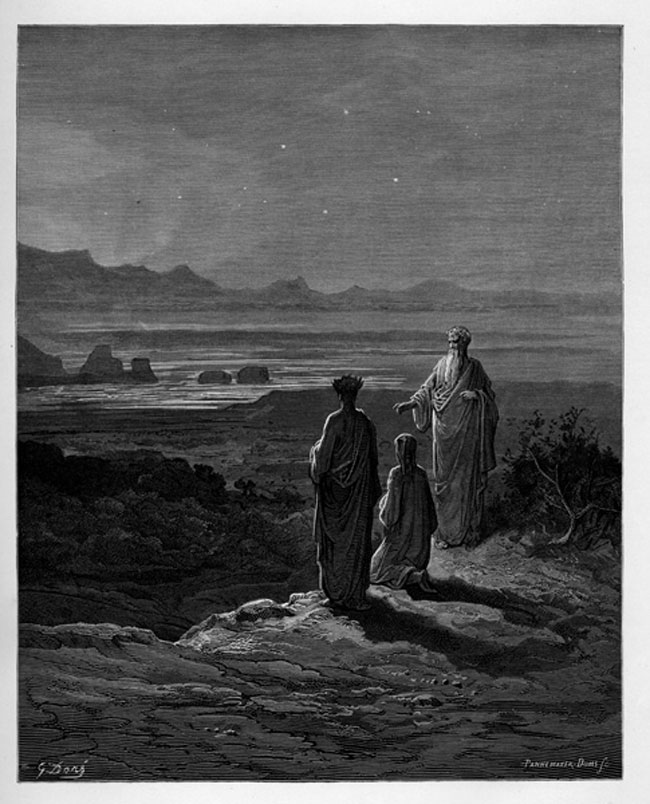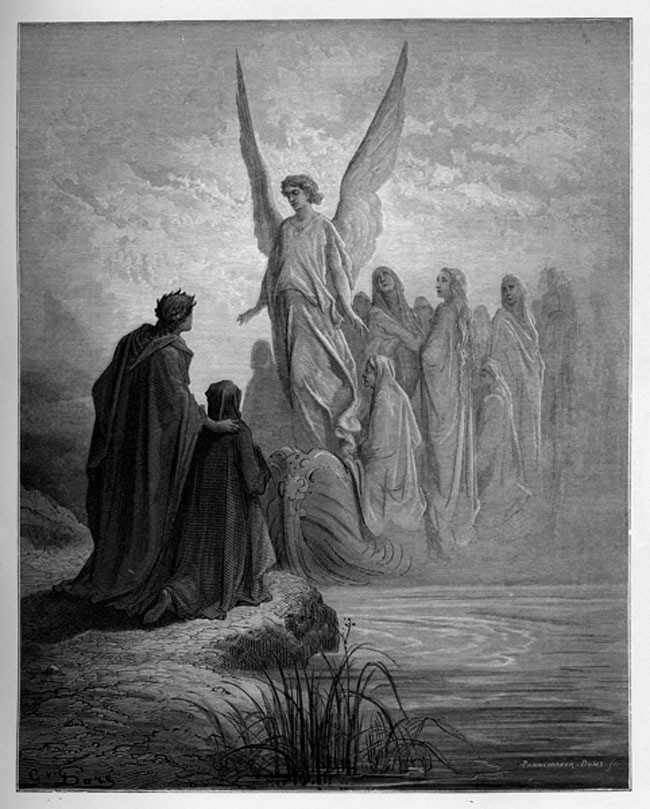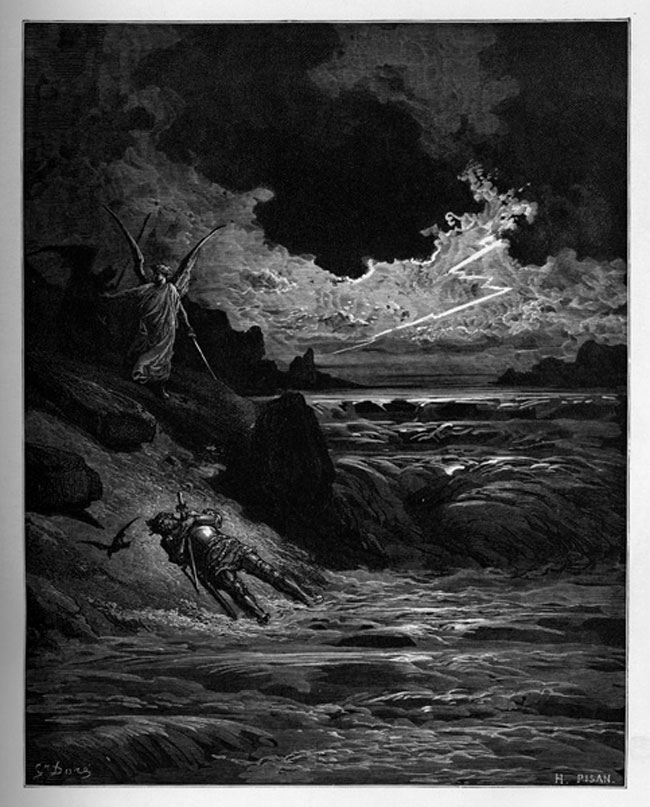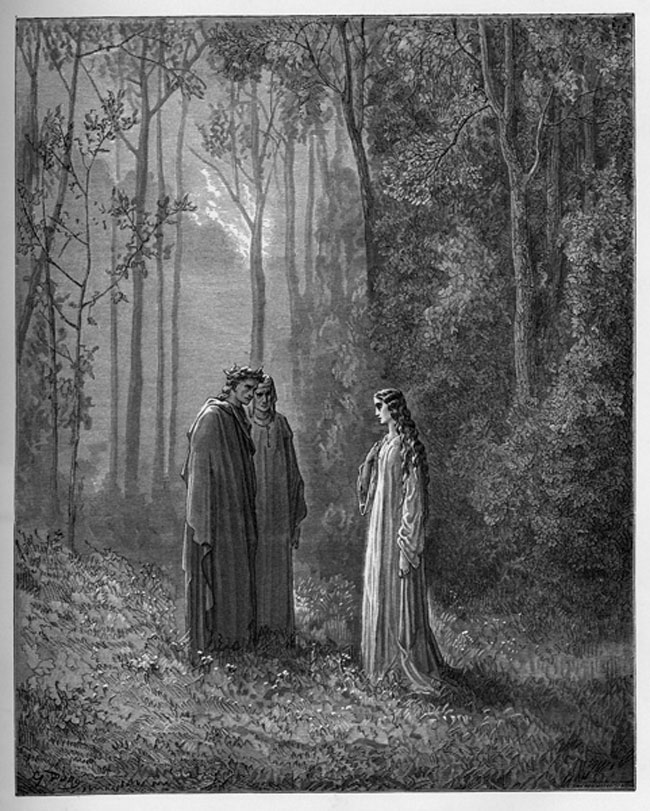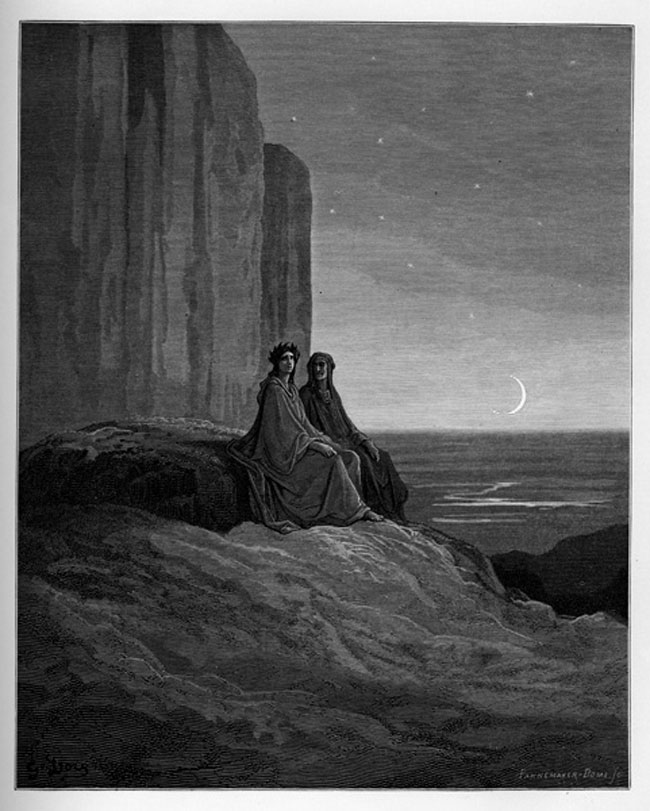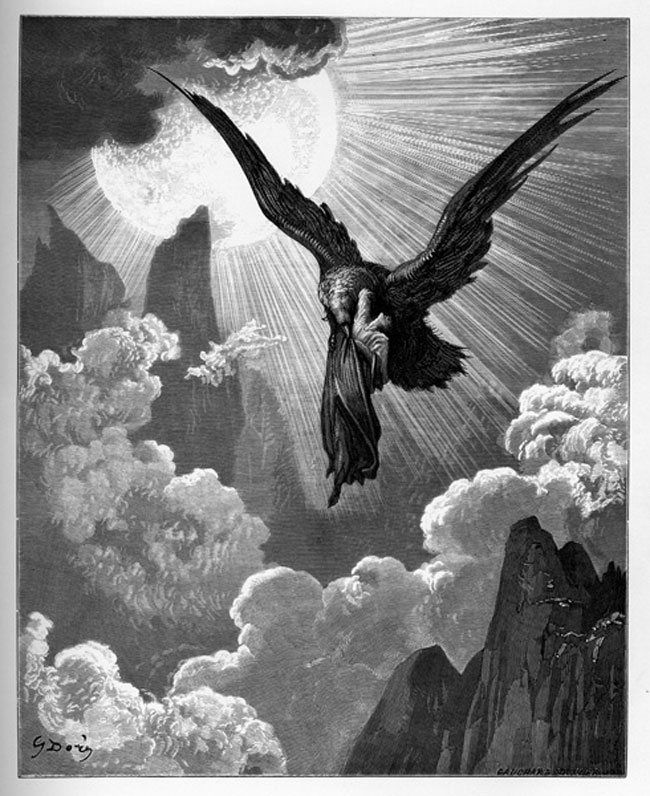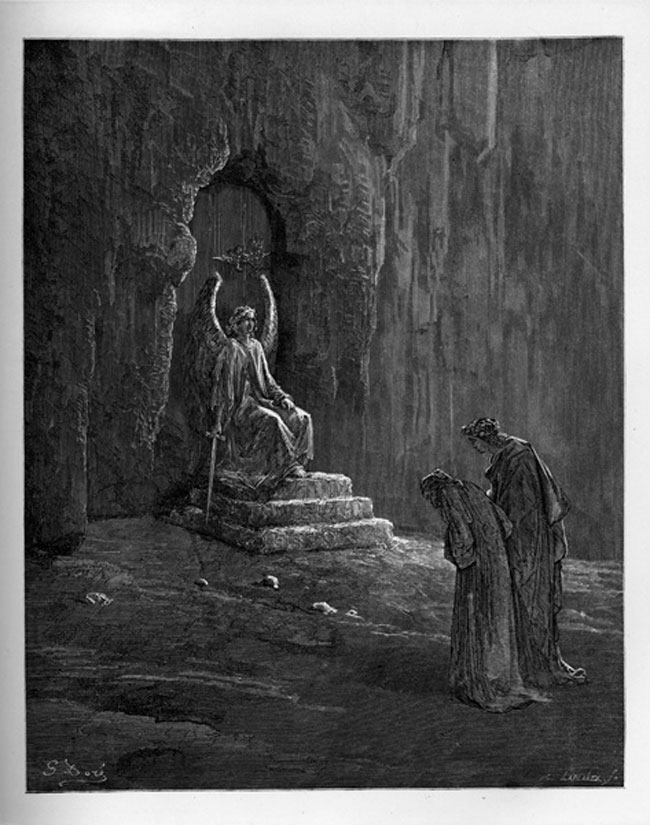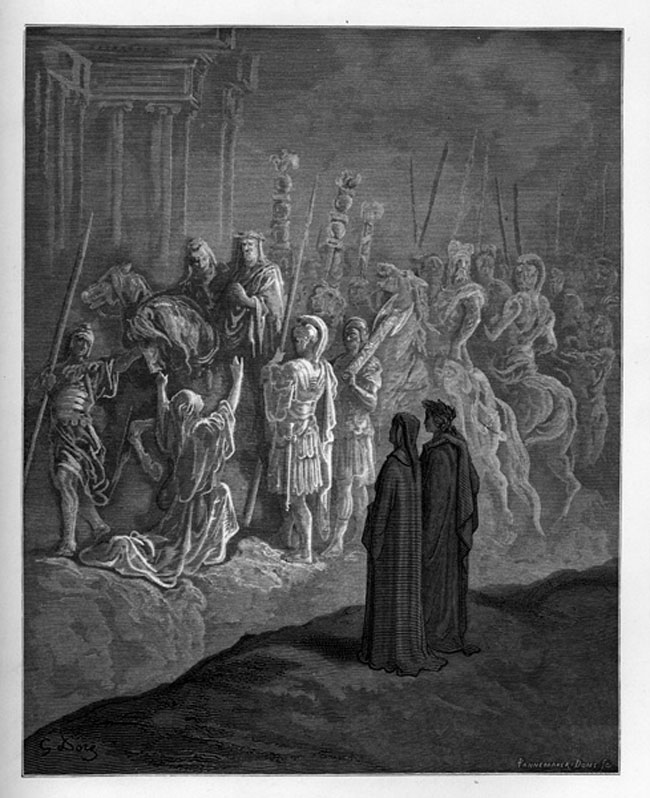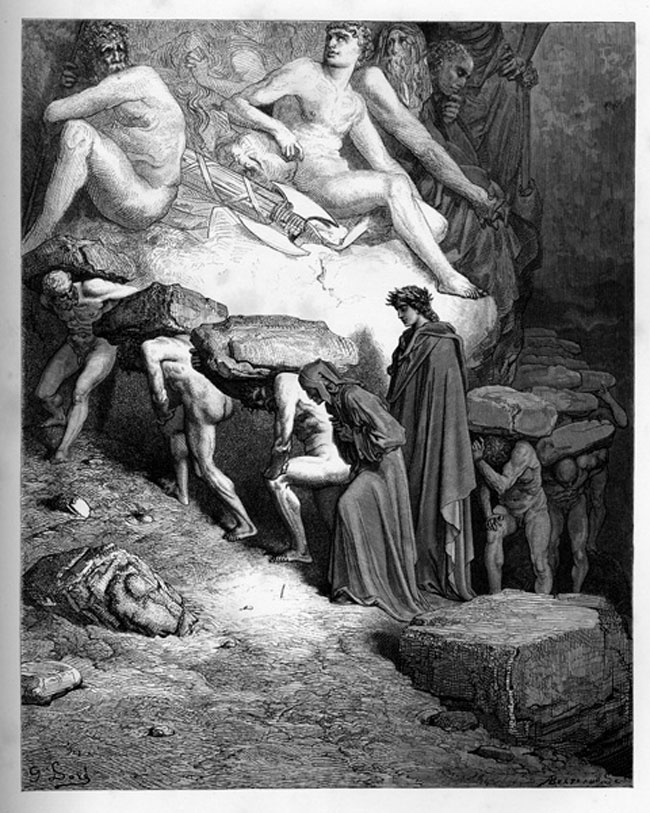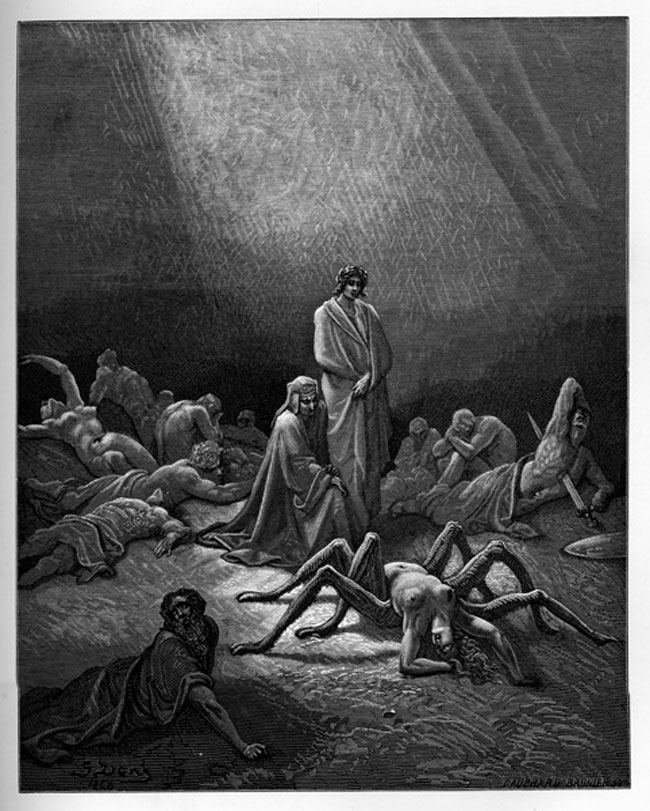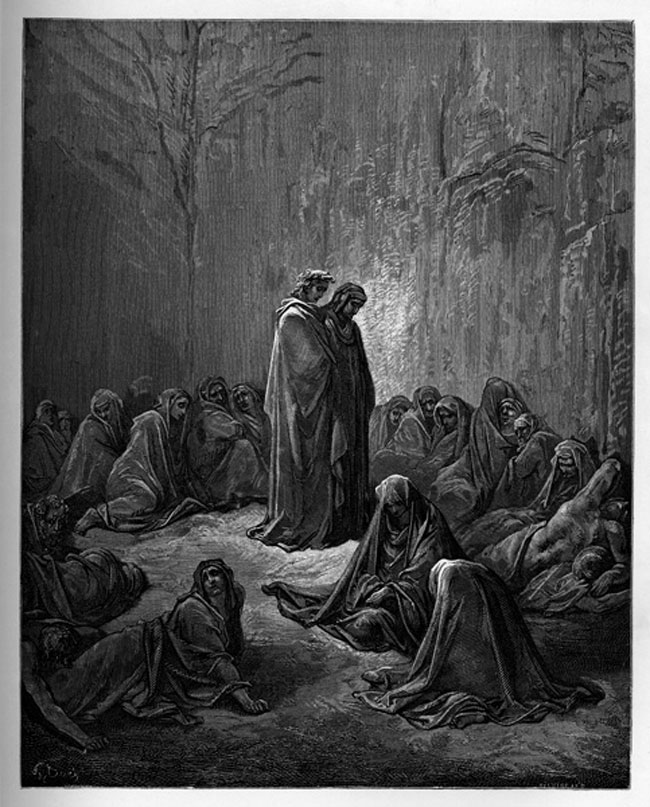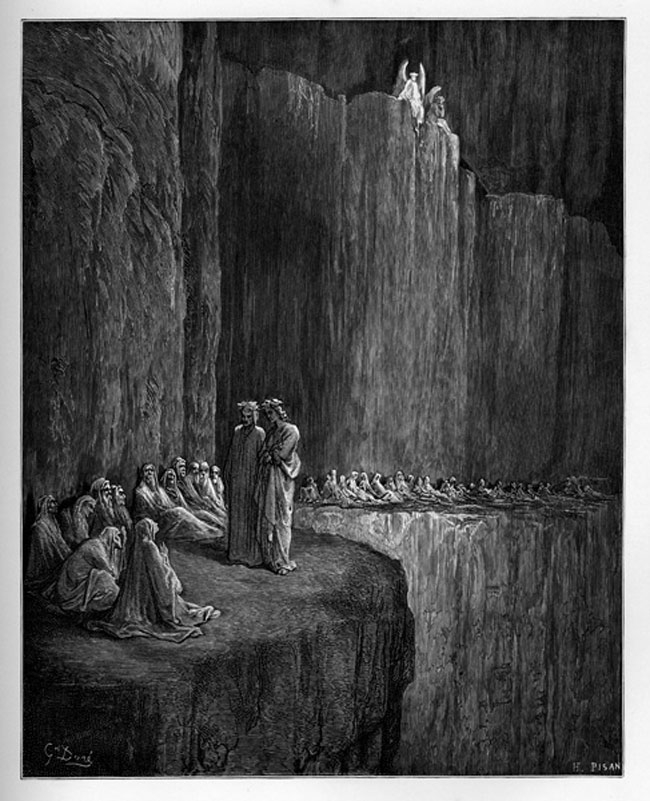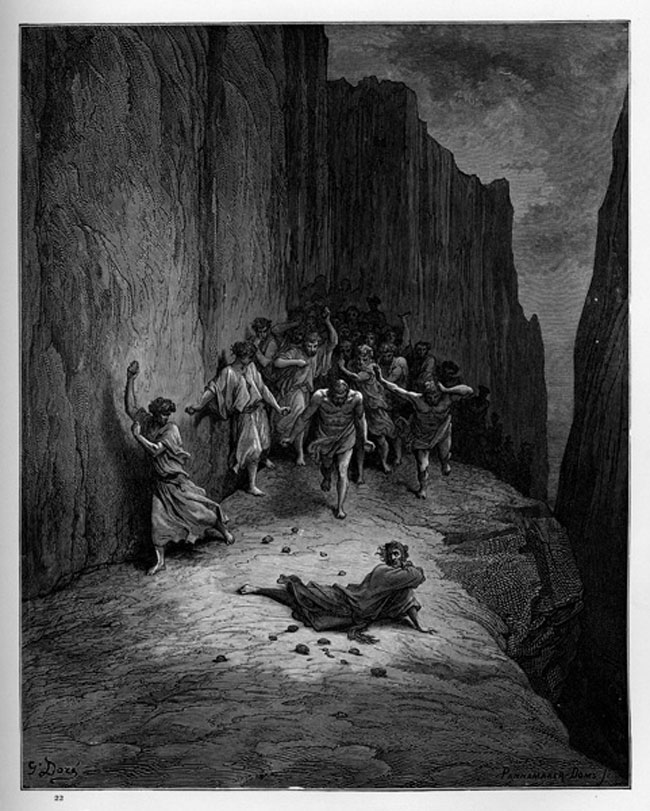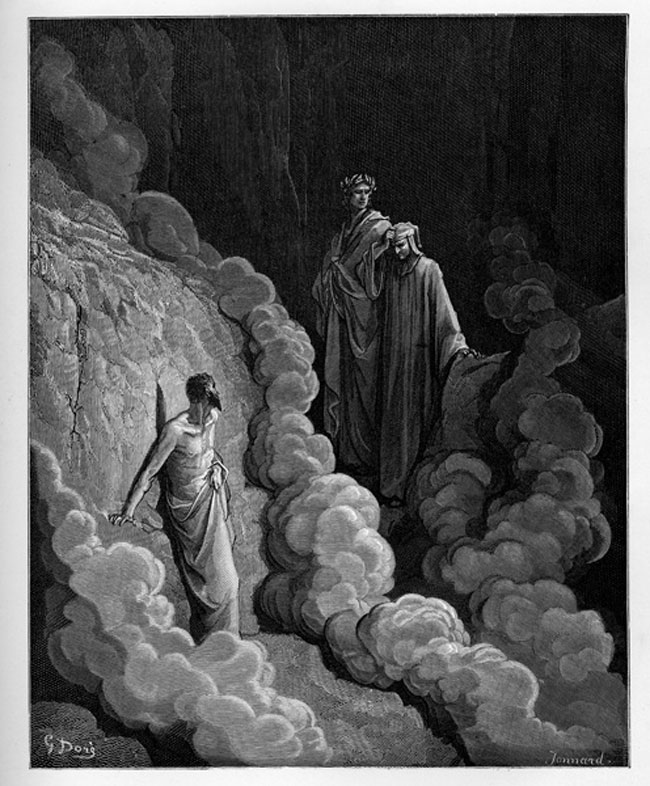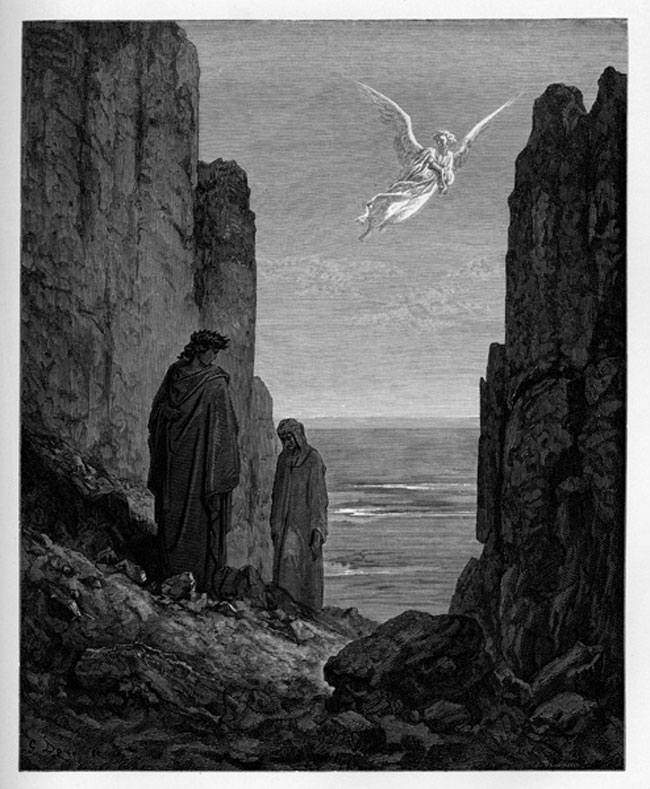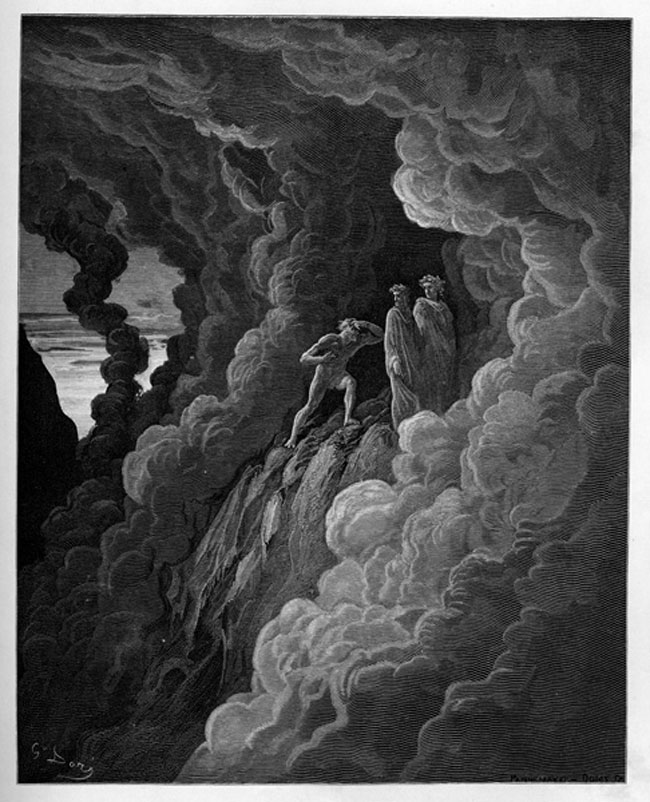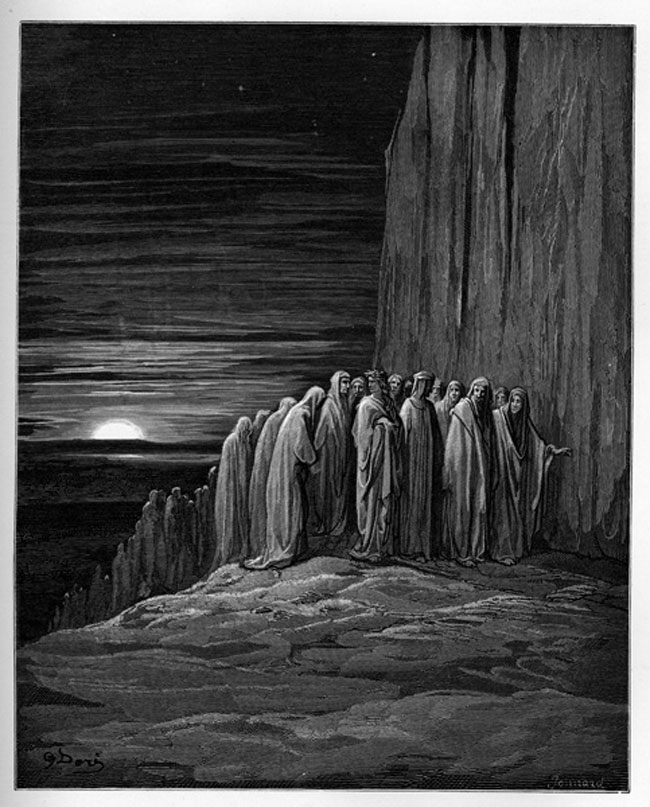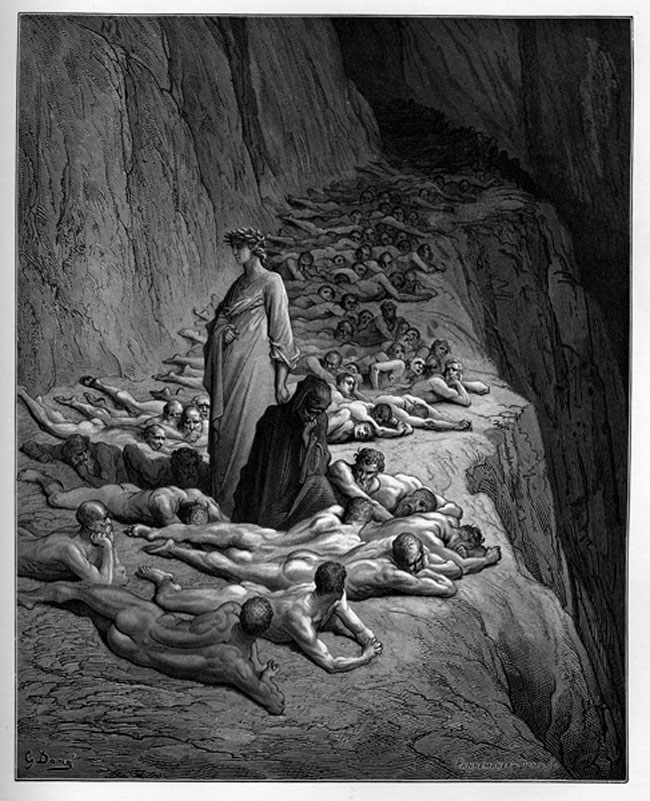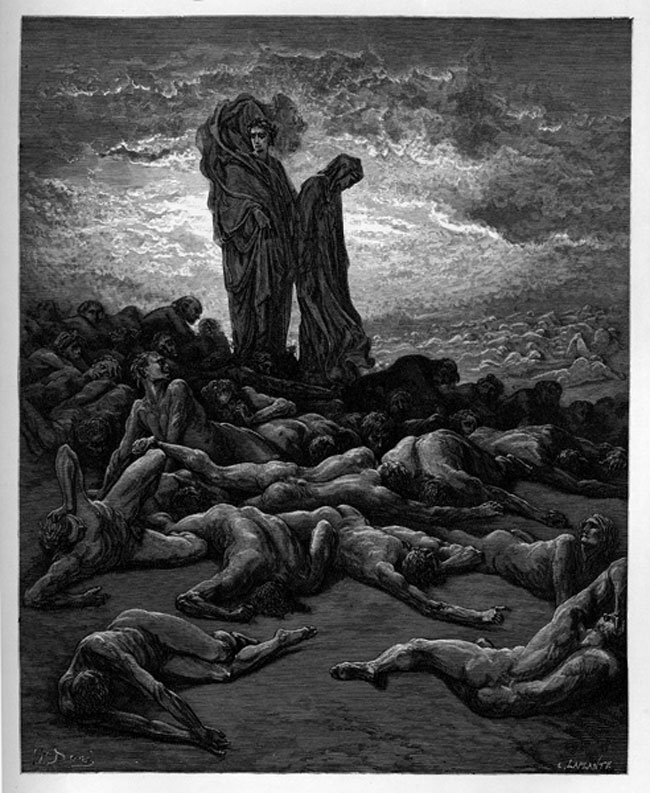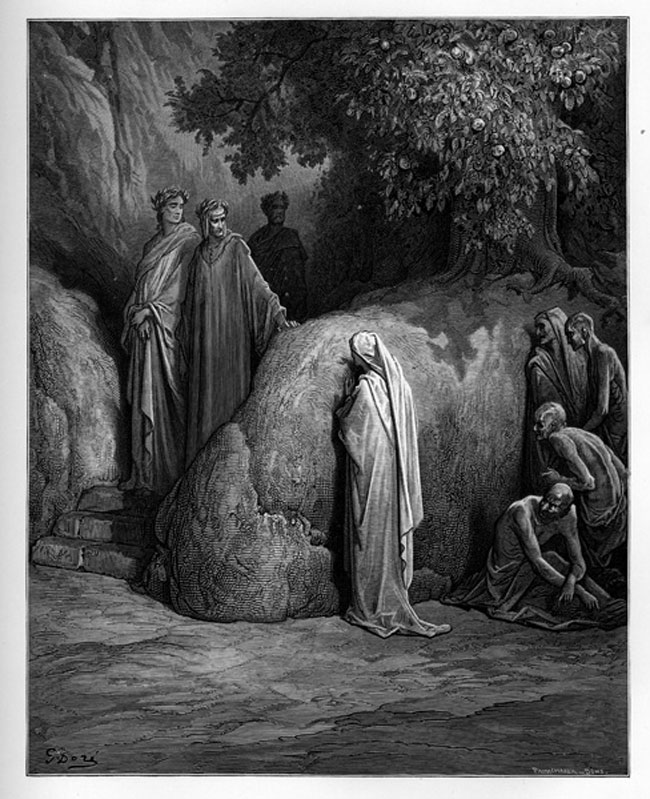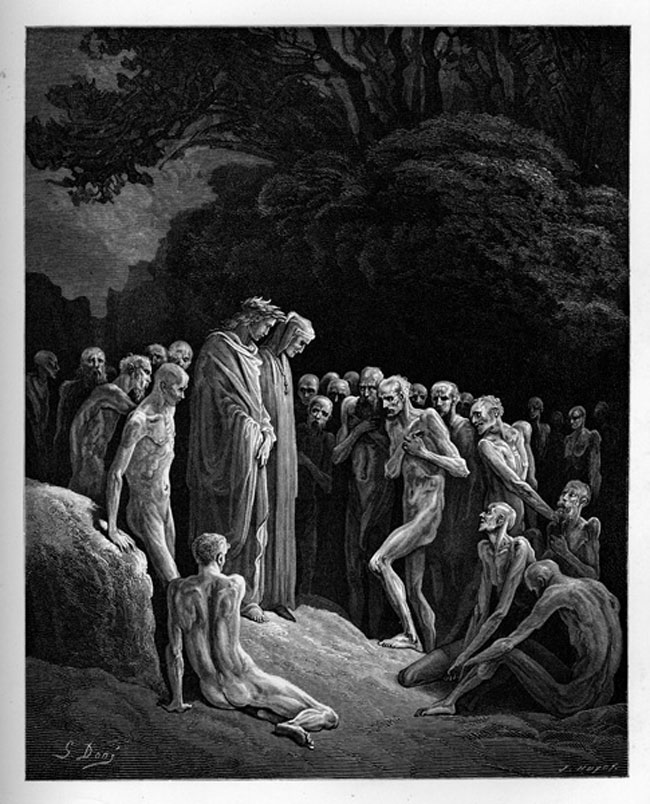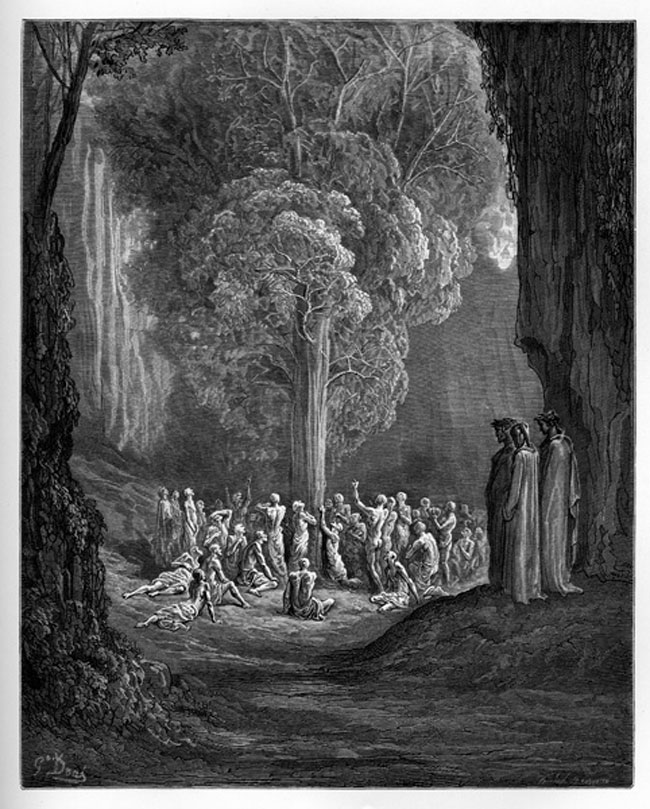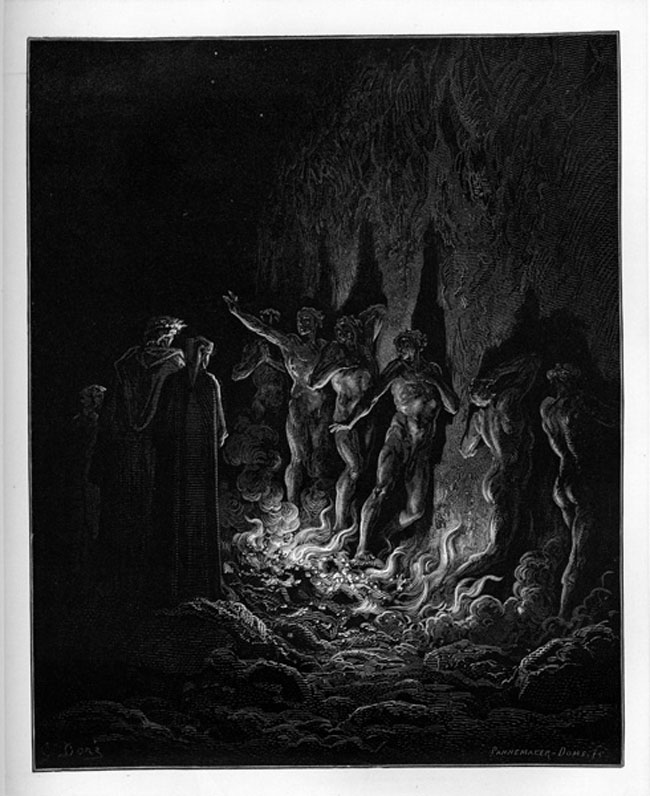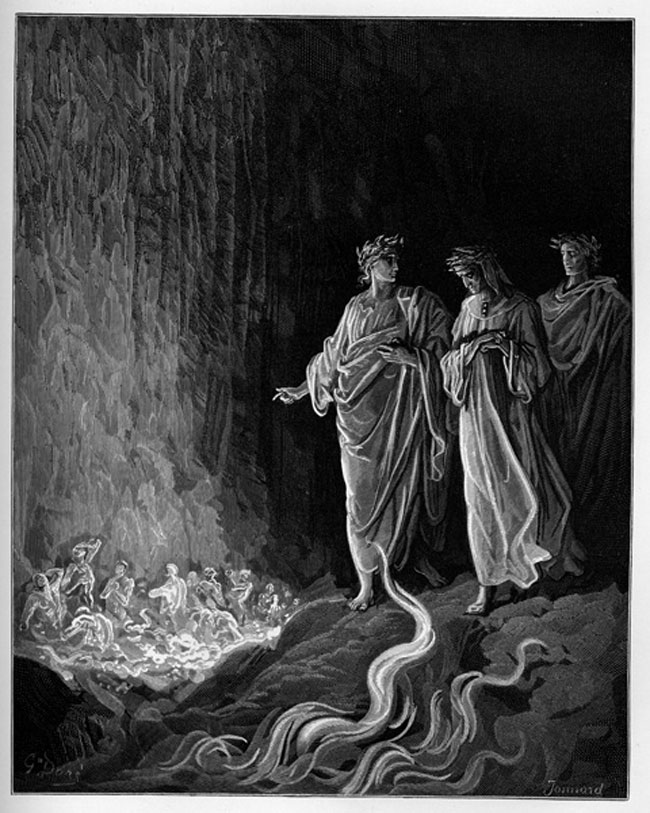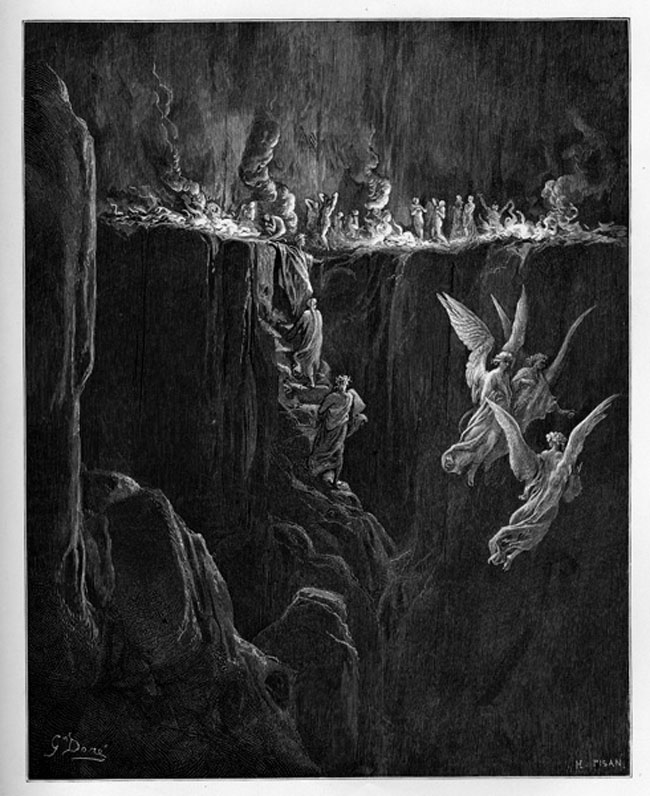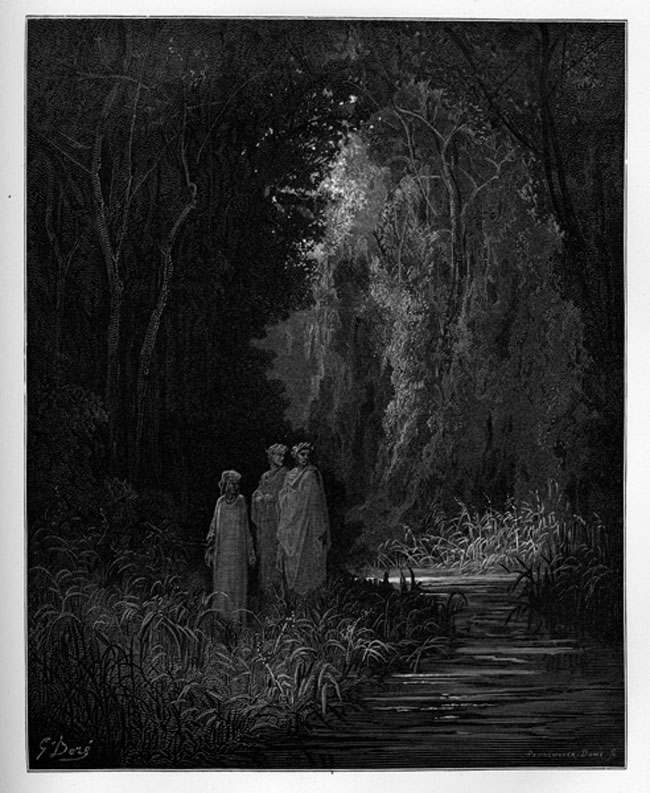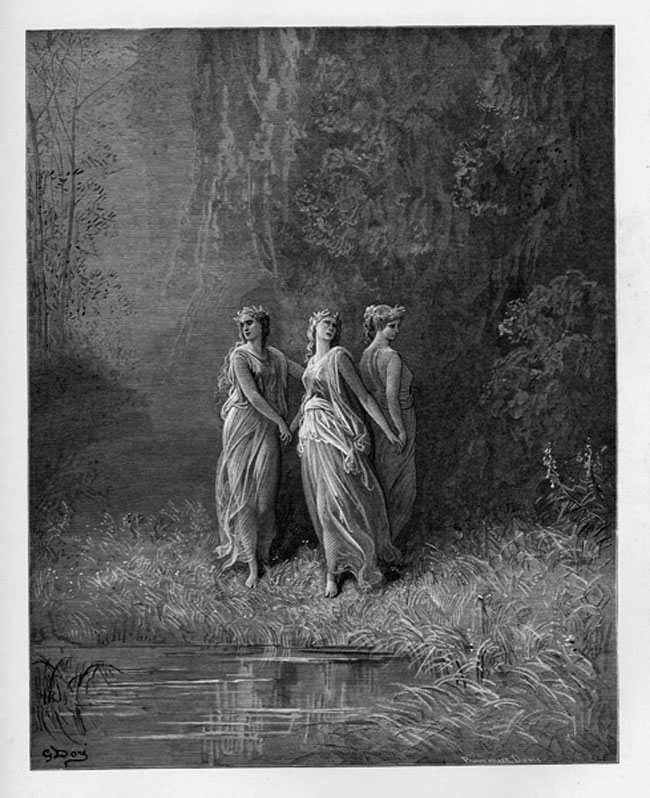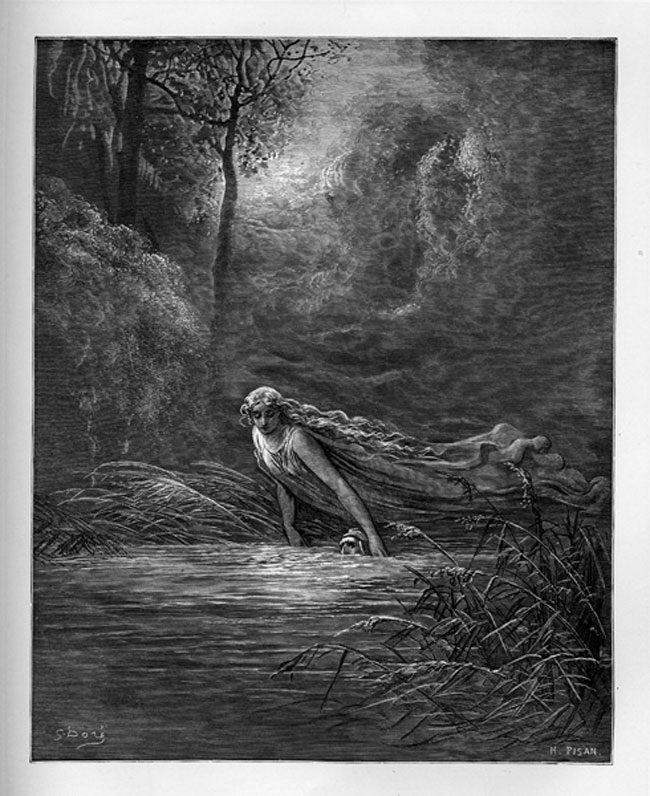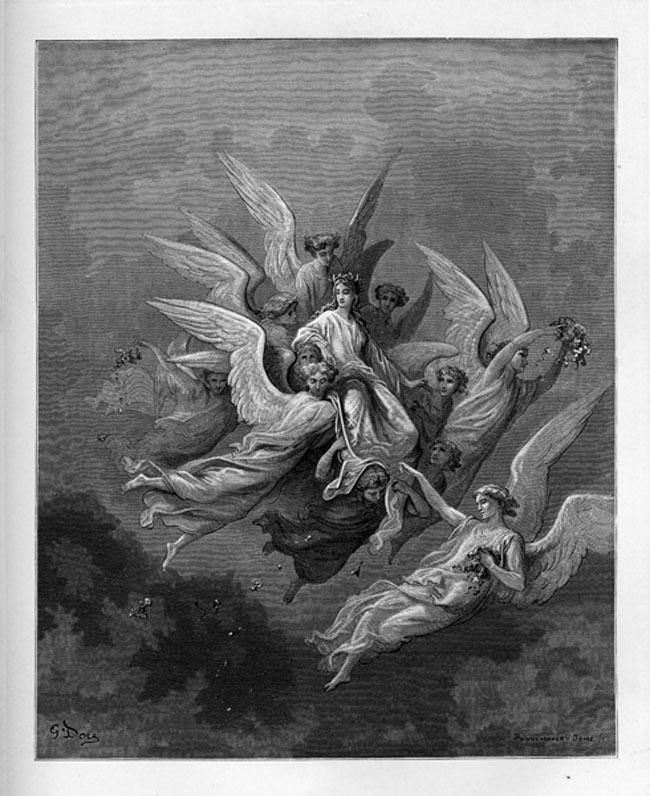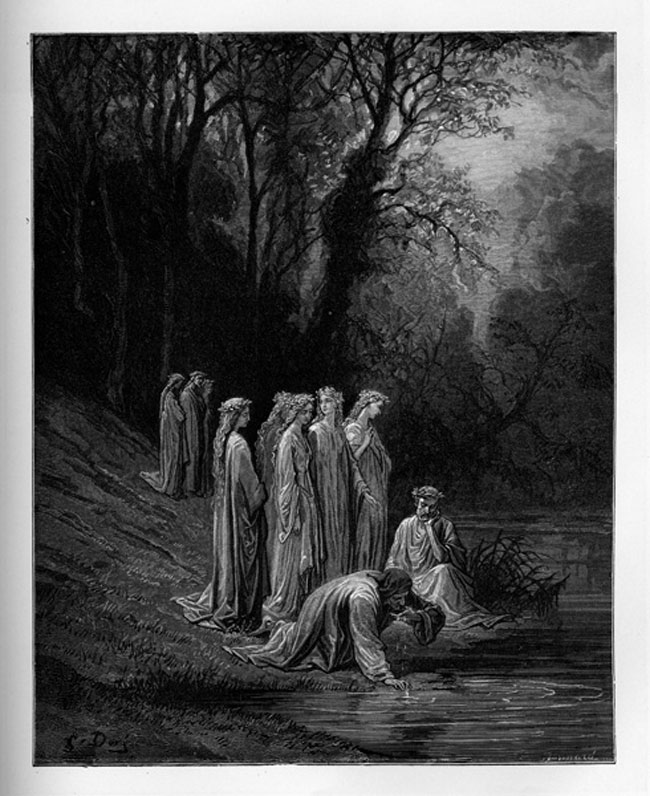Ante-Purgatory
Having emerged from the icy core of Hell, Dante begins his journey in awe of the sky, the sea – the very world around him. Perhaps after spending so much time in the dark, filthy and dangerous circles of Hell he is more than ready for a breath of fresh air! And so, perhaps are we? As Dante nears the mountain of Purgatory, he will encounter saved pagans, lazy friends like Belacqua, and be dizzy with the difficulty of the climb.
Such a light now appeared-ah may I see
that light once more!-surpassing any flight,
so swiftly did it move across the sea.
— Purgatorio Canto 2. 16-18
Translated by Anthony Esolen.
1/5
Peter's Gate
We may be surprised to hear that Dante arrives at the gates of Purgatory only through a dream (perhaps this echoes a moment in the Aeneid, Book 6?). Virgil explains that in fact a lady named Lucia came and carried Dante up to the gate where Purgatory itself begins. Dante receives from St. Peter seven “P’s” marking his forehead, which must be washed away as he moves within Purgatory.
He pushed the hammers of the sacred door.
“Enter,” he said, “but you should be aware,
those who look back are cast outside once more.”
— Purgatorio Canto 9. 130-132
Translated by Anthony Esolen.
1/2
Pride
The first official terrace of Purgatory is home to the prideful souls. Dante and Virgil encounter both the exemplars of the virtue opposed to pride, such as the life of Mary, and watch as souls are purged of their pride through trials. Some of these souls were proud of their own creation, others of their birth or rank. Dante himself experiences an angel removing a “P” from his brow as he continues upwards.
Show us the shortest way to the next ring,
and if there’s more than one path to go up,
direct us to the one of easiest slope,
For he who comes with me is burdened down
by Adam’s flesh, the robe he still must wear,
so his ascent-against his will-is slow.
— Purgatorio Canto 11. 40-45
Translated by Anthony Esolen.
1/3
Envy
On the terrace purging souls from the vice of envy, Dante and Virgil discover souls with eyes sewn shut, preventing them from seeing – and envying – the goods of others. As they climb they meet Guido del Duca, who prophesies about future brutality in Italy, along the Arno river – Dante’s own home, though he keeps himself anonymous in his conversation with del Duca. As he nears the end of this terrace, Dante is struck by a light so powerful that he is forced to look down. And thus he will come to the third terrace, that of anger.
As the one said: “O soul who make your way
heavenward shut within the body’s house,
console us here for charity and say
Where you come from and who you are. You cause
such wonder at the gift of heavenly grace,
wonder as greets a thing that never was!”
— Purgatorio Canto 14. 10-15
Translated by Anthony Esolen.
1/2
Wrath
On this terrace Dante experiences remarkable visions that give him glimpses into the virtue of meekness, which is opposed to wrath, the vice that is being purged here on the third terrace of Purgatory. He sees, in his mind, the Virgin Mary, St. Stephen’s own marytrdom, and Pisistratus with his daughter’s suitor (an example from classical mythology). Dante is so overcome by these visions that Virgil remarks that he cannot even walk straight, once he has returned to awareness of his surroundings. As they continue, they are plunged into darkness by a thick smoke that surrounds the third terrace, which dissipates only as the angel comes to recite the beatitude and remove the mark from Dante’s forehead.
“O my sweet father, if you’ll hear me out,”
said I, “I’ll tell you what appeared to me
when my legs were so feeble.” “If you wore
A hundred masks upon your face,” said he,
“not the most fleeting of your thoughts could ever
be shut to me.”
— Inferno Canto 15. 124-129
Translated by Anthony Esolen.
1/4
Sloth
While there was no circle of hell devoted explicitly to sloth (it was found within the circle dealing with wrath), here there is a terrace with souls so busy running around that they cannot stop to talk with Dante or his guide. Dante and Virgil talk at length about the nature of love – but, Virgil admits, Dante will have to wait to learn more from Beatrice herself.
“Come on, come on, don’t let time slip away
for lukewarm love!” cried out those who ran nearby.
“Zeal in well-doing makes grace green again!”
— Purgatorio Canto 18. 103-105
Translated by Anthony Esolen.
1/1
Greed
Dante enters the fifth terrace, which is the entrance to higher Purgatory, also by way of a powerful vision and dream. Here, the souls are being purged of the vices of avarice and prodigality. Dante once again encounters specific souls who are being purged, including a pope and a founder of a French dynasty, but perhaps most striking is the tremendous earthquake that shakes Dante and Virgil – a mysterious event, because, as we learn, it has no natural explanation.
We had departed from that shade by now
and set ourselves to overcome the road
as far as the thronged passage would allow,
When I felt the hill tremble like a thing
ready to topple over-and I was taken
by chills that seize a man led off to die.
— Purgatorio Canto 20. 124-129
Translated by Anthony Esolen.
1/2
Gluttony
Dante tells us, as he and Virgil begin to ascend up Purgatory, that he does not struggle to climb nearly as much anymore – he is lighter than when he first began. Statius, who now walks with Virgil and Dante, tells them how Virgil’s own words brought him to salvation and in turn influenced many others whom Statius brought to faith. As Virgil and Statius discuss poetry, they come upon a lush tree in the center, which is, they discover, not for eating. In this terrace of gluttony, Dante meets and converses with an old friend, and reflects on the surprising thinness of the souls around him.
They two walked on ahead, and I, alone,
followed and listened to their conversation
and learned about the art of poetry.
— Purgatorio Canto 22. 127-129
Translated by Anthony Esolen.
1/3
Lust
The final terrace of Purgatory is that of Lust. Here Dante and Virgil meet Guido Guinizzelli and Arnaut Daniel, both lyric poets, and an intense, purging fire that cleanses the souls in this terrace. When the night comes upon them, they rest, and then, Dante dreams again. He is coming to the Earthly Paradise, and, therefore, to his final moments with Virgil.
But my sweet father spoke of Beatrice
with every step he took, to comfort me:
“I think I can already see her eyes.”
— Purgatorio Canto 27. 52-54
Translated by Anthony Esolen.
1/3
The Earthly Paradise
Dante has made it to the earthly paradise, which is exceptionally rich and green. He describes the purest streams of water flowing down green banks, and flowers everywhere, the perfection of natural beauty. This place is, of course, where Virgil leaves Dante, and Beatrice arrives. Both of these moments bring Dante extreme depth of feeling. Beatrice rebukes Dante, he confesses to her, and through the final moments in Earthly Paradise Dante will be prepared for his final journey.
But Virgil had deprived us of his light,
Virgil the sweetest father, Virgil, he
in whom I trusted that I might be healed,
Nor all the world our mother Eve once lost
could keep my cheeks that had been cleansed with dew
from darkening again with bitter tears.
— Purgatorio Canto 30. 49-54
Translated by Anthony Esolen.
1/5

